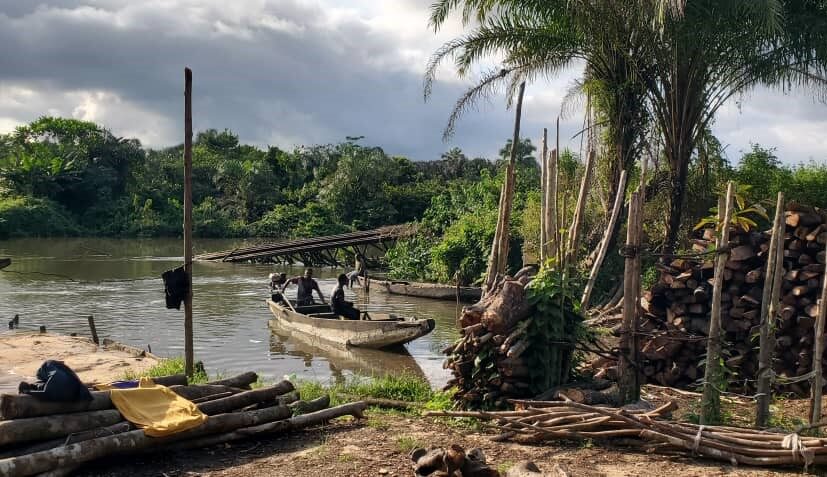FOR years, residents of Ndiya community in Akwa Ibom State have watched their only link to neighbouring towns crumble, a collapsed bridge cutting them off from essential services and daily life.
What many did not realise, however, was that somewhere far away on official federal records the same bridge had already been repaired, certified, and celebrated as a completed government project.
News Point Nigeria reports that according to findings by MonITNG, a civic technology initiative tracking public projects across Nigeria, a ₦246 million contract for the repair of the Ndiya Bridge along the Ekparakwa–Etinan–Ikot Ubo Road was awarded in March 2023 by the Federal Ministry of Works to a company identified as Nakiz Integrated Services Ltd.
The contractor, MonITNG said, claimed the project had been fully executed and signed off by supervising officials, with a formal certificate of completion issued.
But a return to reality told a different story.
In April 2024, when MonITNG’s Tracka team visited the bridge for verification, they were met not by a functioning piece of infrastructure but by the same collapsed wooden structure residents had been battling for more than a decade dangerous, impassable, and left to rot.
“No repair work had been carried out at all,” the investigators reported, describing the location as deplorable and unsafe.
“They noted that the community has lived with this hardship for years, their livelihoods and movement curtailed. Farmers struggle to reach markets, schoolchildren are forced to trek long and risky alternative routes, and transportation remains costly and limited.
Yet despite the visible abandonment, the bridge continued to enjoy remarkable attention on paper.
MonITNG discovered that the very same project, declared completed in 2023, reappeared in the 2024 national budget as a fresh line item under a new title and code with more funds allocated. And again, in the proposed 2025 budget, the bridge surfaced once more under another variation of the project name, this time linked to a different executing agency, as though no previous work had ever existed.
To the civic group, this pattern is neither coincidence nor clerical error, it is a telling glimpse into a widespread culture of recycled projects and “completion” claims that only exist in files and government portals.
“This pattern of recycled budgeting, false completion claims, and lack of accountability is a disturbing example of how public resources are siphoned away while citizens are left to suffer the consequences of abandoned projects,” MonITNG said in a strongly worded statement.
The organisation is calling for immediate intervention from the Independent Corrupt Practices and Other Related Offences Commission (ICPC), the Economic and Financial Crimes Commission (EFCC) and the Federal Ministry of Works, insisting that both the contractor and the supervising officials must be compelled to show where and when the so-called repairs occurred.
MonITNG argues that much of the problem stems from the absence of a functional monitoring and evaluation framework inside ministries and agencies, one that would ensure projects exist beyond paperwork and that contractors deliver value for funds released.
Without such systems in place, they warn, Nigeria risks continuing a cycle in which taxpayers fund projects multiple times while benefiting from none.
“Every naira released must be tracked, accounted for, and tied to visible, functional infrastructure,” the group urged, calling on the Ministry of Budget and National Planning to enforce stricter oversight before approving future allocations.







